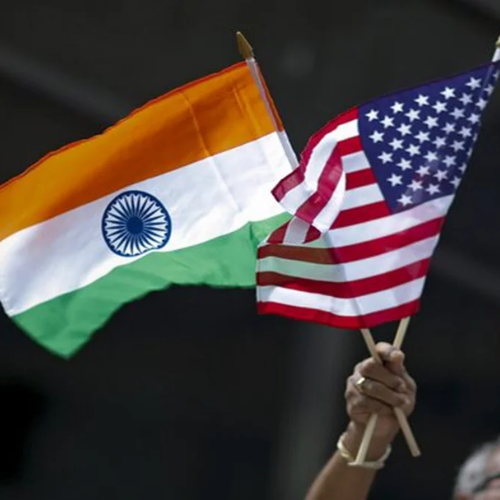In a significant move, the United States has officially lifted sanctions on three major Indian organizations: the Bhabha Atomic Research Center (BARC), Indian Rare Earths Limited, and the Indira Gandhi Atomic Research Center (IGCAR). These sanctions had been in place since the Cold War era, restricting these entities from collaborating with American companies and research institutions.
The announcement was made by the US Department of Commerce’s Bureau of Industry and Security (BIS) just days before a key transition in the US government. According to BIS, the removal of these restrictions will facilitate advanced cooperation in energy technologies between the two nations. This includes areas like clean energy, research, development, and science and technology collaboration, which are crucial to meeting shared energy security goals.
The sanctions were initially imposed decades ago as part of broader restrictions on countries and entities perceived as threats during the Cold War. Over time, the nature of US-India relations has evolved dramatically. From mutual suspicion, the two countries have built a strong partnership in trade, defense, and science, leading to the removal of these sanctions.
A Boost to US-India Energy Cooperation
The lifting of these restrictions comes as a clear sign of the deepening bond between India and the United States. The two countries have been strengthening their collaboration in peaceful nuclear research and advanced energy technology over the years. Officials from BIS highlighted that this decision will allow for closer cooperation in critical areas, particularly in developing resilient supply chains for critical minerals and clean energy.
Biden’s Bold Decision to Ease Cuba Sanctions Sparks Controversy
Previously, the sanctions had limited these Indian entities from accessing advanced technologies and collaborating with American institutions. BARC, for example, is a major player in India’s nuclear research and energy initiatives, while IGCAR and Indian Rare Earths Limited are key to nuclear technology and critical mineral research. Removing these barriers will now enable American and Indian organizations to work together on cutting-edge technologies and explore shared solutions for energy security.
The BIS further emphasized that this decision reflects the US government’s broader foreign policy goals. It aligns with the growing recognition of India as a key strategic partner, especially in areas like clean energy and critical technology development. The move is expected to promote joint research, boost innovation, and strengthen the energy capabilities of both nations.
Sanctions Added on Chinese Entities
While lifting restrictions on the three Indian organizations, the BIS simultaneously added 11 Chinese companies to its Entity List. The Entity List is a tool used by the US to restrict companies and institutions that engage in activities deemed harmful to its national security or foreign policy interests.
New US Sanctions Hammer Russian Oil Trade with China and India
The new additions to the list are based on accusations of supporting China’s military modernization and engaging in activities contrary to US interests. According to the BIS, this decision highlights the US’s intent to reward cooperation and penalize actions that undermine its policies.
Officials emphasized that the Entity List serves as a powerful tool to shape international behavior. By removing sanctions on Indian organizations, the US has demonstrated its willingness to support nations that align with its foreign policy goals. At the same time, the addition of Chinese entities to the list sends a strong message that actions against US interests will not go unaddressed.
The US government’s decision to lift sanctions on Indian entities is also seen as a step toward enhancing bilateral ties between the two nations. Over the years, India and the US have worked closely on several global challenges, including climate change, energy security, and technology development. This decision is expected to further cement their partnership and encourage closer collaboration on shared priorities.
The removal of sanctions on BARC, IGCAR, and Indian Rare Earths Limited marks a historic shift in US-India relations. It opens up new avenues for cooperation in critical areas like clean energy and advanced technology, underscoring the growing trust and mutual respect between the two nations. At the same time, the addition of Chinese entities to the Entity List highlights the US’s focus on promoting partnerships that align with its strategic interests while addressing challenges posed by rival powers.


